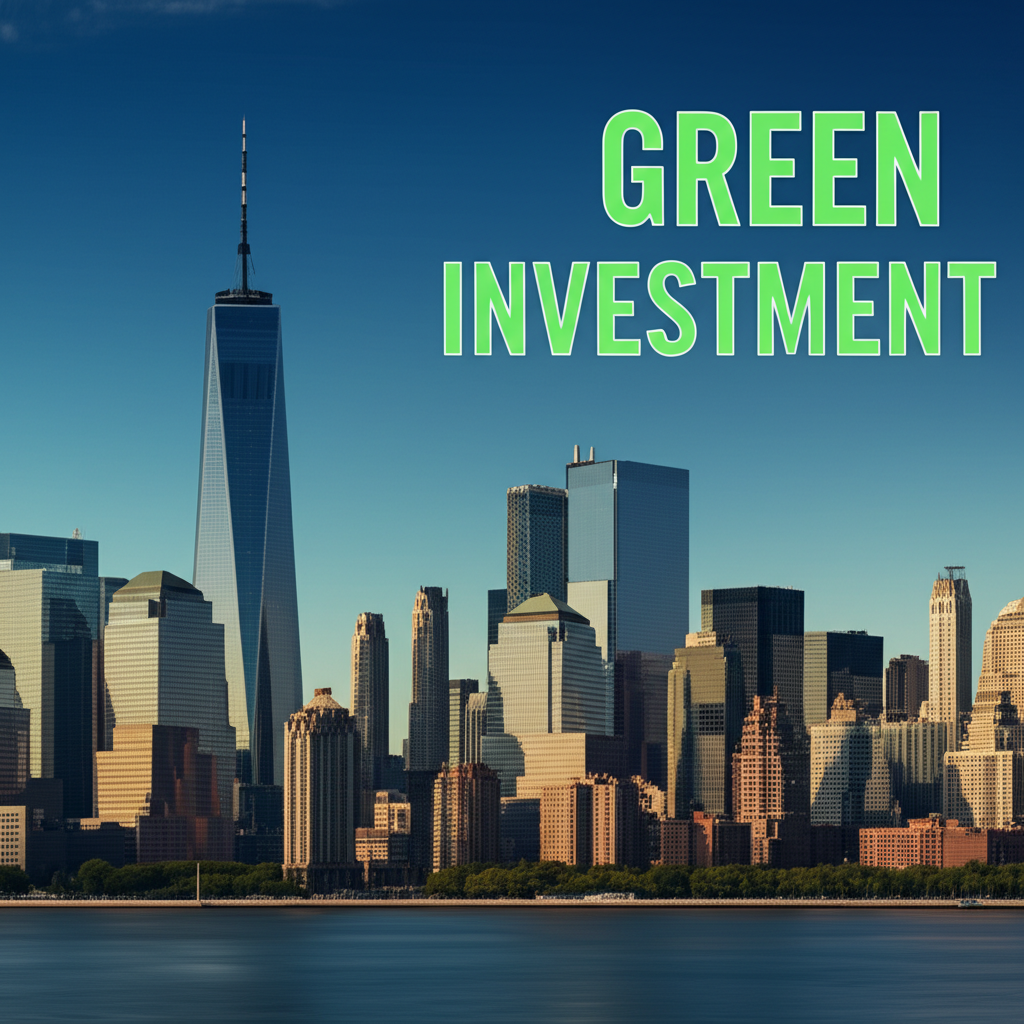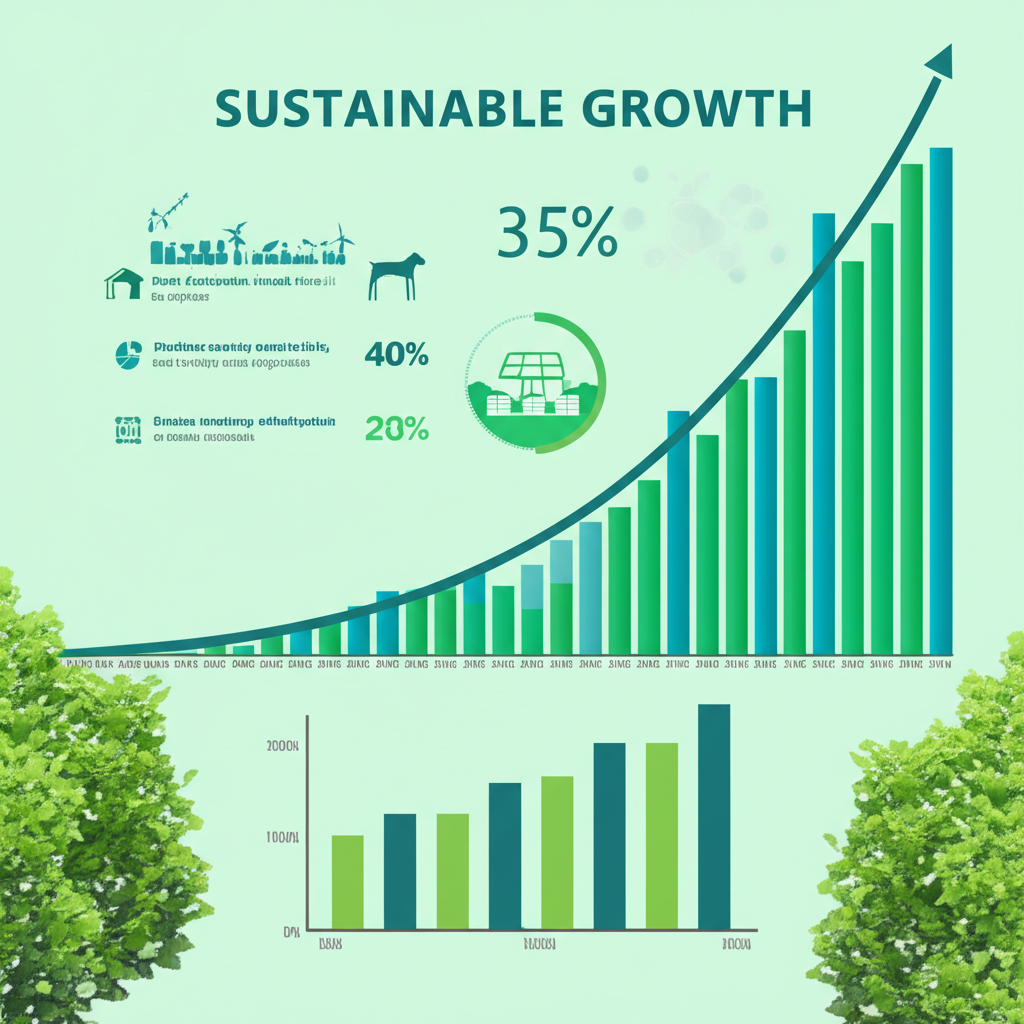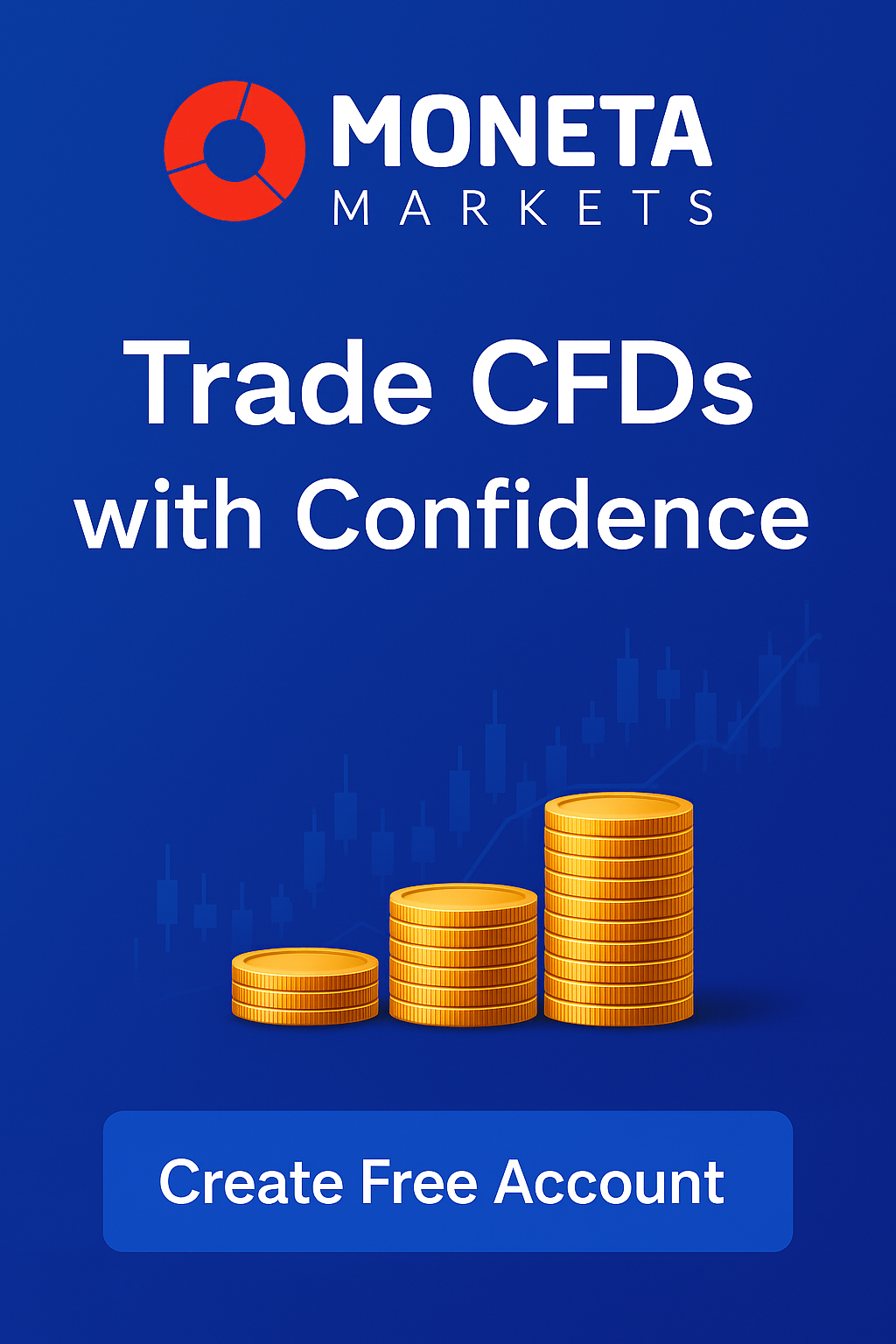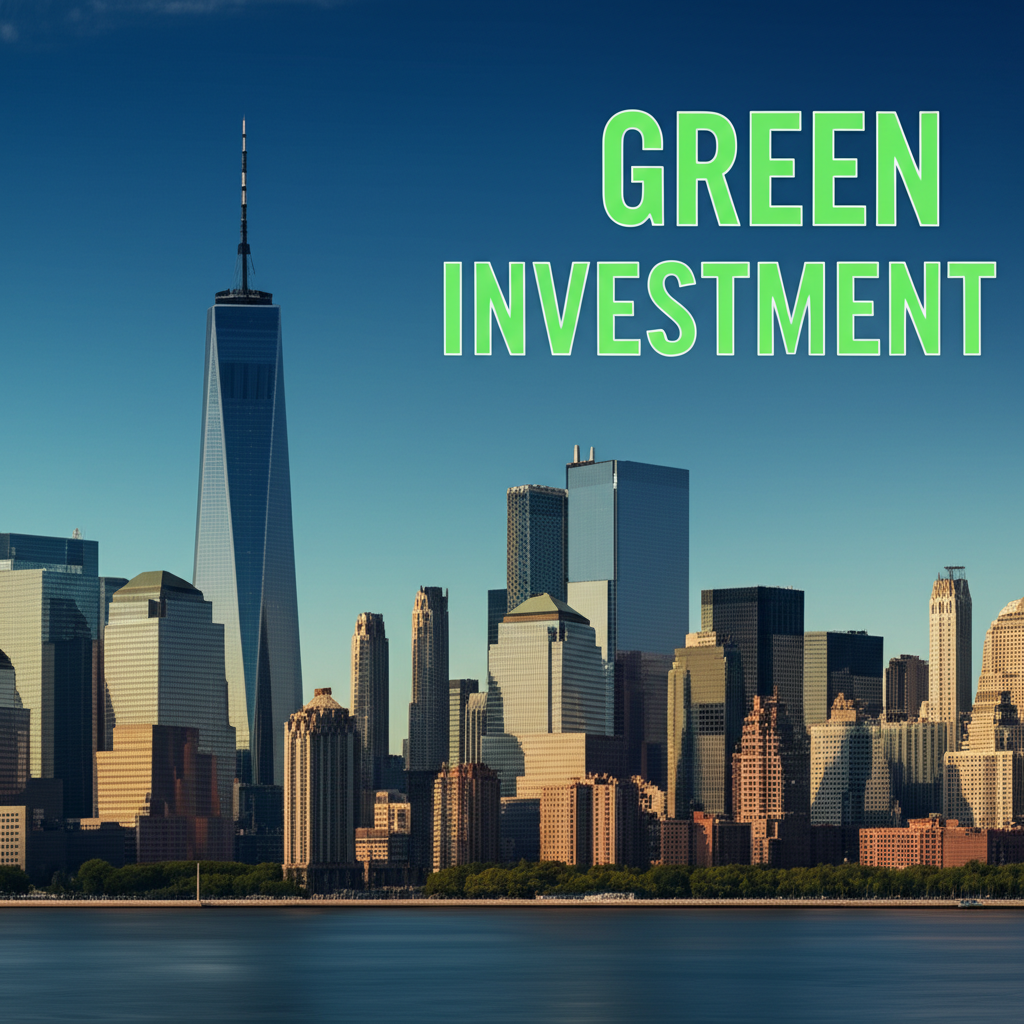What Are ESG ETFs? Sustainable Investing in the U.S. Market for 2025

Environmental, Social, and Governance (ESG) Exchange-Traded Funds (ETFs) are redefining how American investors approach long-term wealth building. No longer just a niche for values-driven portfolios, ESG ETFs have cemented their place in the mainstream U.S. financial landscape. These funds combine the accessibility and diversification of traditional ETFs with rigorous screening criteria that prioritize sustainability, ethical business practices, and corporate accountability. For U.S. investors in 2025, ESG ETFs represent a strategic way to pursue competitive returns while supporting companies leading the charge on climate action, social equity, and transparent governance.
At their core, ESG ETFs invest in companies that meet specific benchmarks across three key areas. The environmental component evaluates a firm’s impact on the planet-measuring carbon emissions, energy efficiency, water use, and progress toward renewable energy adoption. The social dimension looks at how a company treats its people and communities, including labor standards, diversity and inclusion, data privacy, and consumer protection. Governance focuses on leadership integrity, board independence, executive compensation, and shareholder rights-essentially, how a company is run. By integrating these non-financial metrics into investment decisions, ESG ETFs aim to identify organizations better positioned to thrive amid long-term global shifts.
Over the past decade, ESG investing has evolved from a marginal trend into a major force in U.S. capital markets. As climate risks intensify and social expectations rise, investors are increasingly demanding transparency and accountability. This shift is reflected in the rapid growth of ESG ETF assets, now totaling over $300 billion in the U.S. alone. With institutional investors, retirement plans, and retail participants all embracing sustainable strategies, ESG ETFs are no longer a side bet-they’re a central part of modern portfolio construction.
Breaking Down the Three Pillars of ESG: What They Mean for U.S. Investors
Understanding the individual components of ESG is essential for making informed investment decisions. Each pillar offers insight into different aspects of corporate risk and opportunity, helping investors spot companies built to last in a changing world.
Environmental (E) Factors
In the U.S., environmental performance is under growing scrutiny from regulators, consumers, and investors alike. Companies that fail to manage their environmental impact face increasing exposure to regulatory penalties, supply chain disruptions, and reputational damage. ESG ETFs that emphasize environmental criteria often exclude fossil fuel-intensive businesses or overweight firms leading in clean technology, circular economy models, and climate resilience.
For example, an ESG fund might favor utilities investing heavily in wind and solar over those reliant on coal. It may also reward manufacturers that reduce waste through closed-loop production or tech companies powered by renewable energy. With the Biden administration’s continued emphasis on climate policy and the SEC’s proposed climate disclosure rules, environmental due diligence is no longer optional-it’s a financial imperative.
Social (S) Factors
The social pillar measures how companies interact with their employees, customers, and communities. In the U.S., this includes evaluating fair wages, workplace safety, racial and gender equity, supply chain labor practices, and customer data ethics. A company with strong social policies is more likely to attract and retain talent, maintain customer loyalty, and avoid costly lawsuits or boycotts.
Recent events have underscored the importance of social responsibility. From pandemic-era worker protections to debates over data privacy and algorithmic bias, social governance has become a flashpoint for public trust. ESG ETFs that prioritize social criteria often include firms with high employee satisfaction ratings, robust diversity initiatives, and transparent supply chains. These characteristics can contribute to operational stability and brand strength-key drivers of long-term value.
Governance (G) Factors
Governance is the backbone of any well-run company. It encompasses board composition, executive pay alignment, audit quality, and shareholder rights. Poor governance-such as concentrated ownership, lack of board diversity, or weak oversight-can lead to scandals, mismanagement, and underperformance.
In the U.S., where shareholder activism is strong and regulatory oversight is tightening, governance quality matters more than ever. ESG ETFs often screen out companies with governance red flags, such as excessive CEO compensation relative to performance or a history of accounting irregularities. They may also favor firms with independent boards and clear policies on anti-corruption and ethical conduct. Strong governance doesn’t guarantee success, but it significantly reduces the risk of preventable failures.
Pros and Cons of ESG ETF Investing in the U.S. for 2025
Like any investment strategy, ESG ETFs come with advantages and trade-offs. Understanding both sides helps U.S. investors build portfolios that align with their values and financial goals.
Financial Advantages
A growing body of research suggests that strong ESG performance correlates with solid financial returns. Companies that manage environmental risks, treat employees fairly, and operate with transparency are often more resilient during market downturns. They’re less likely to face fines, lawsuits, or boycotts-all of which can erode shareholder value.
For example, firms with robust climate strategies may avoid stranded asset risks as the energy transition accelerates. Similarly, companies with inclusive cultures tend to innovate more effectively and retain top talent. These operational efficiencies can translate into stronger earnings and competitive advantages over time. While ESG funds aren’t immune to market volatility, their focus on long-term sustainability can provide a stabilizing effect in turbulent periods.
Ethical and Impact Benefits
Beyond returns, many U.S. investors turn to ESG ETFs to align their money with their principles. Whether it’s reducing carbon emissions, advancing social justice, or supporting ethical leadership, ESG investing allows individuals to exert influence through capital allocation. This form of “impact investing” appeals to millennials and Gen Z investors, who are more likely to prioritize purpose alongside profit.
Moreover, as ESG assets grow, so does their collective influence. Large fund managers like BlackRock and Vanguard use their shareholder voting power to push for stronger climate disclosures and board diversity. By investing in ESG ETFs, even small investors become part of a broader movement reshaping corporate behavior.
Key Challenges to Watch
Despite the benefits, ESG investing isn’t without pitfalls. “Greenwashing” remains a major concern-some funds market themselves as sustainable while holding companies with questionable ESG records. This lack of standardization stems from the fact that ESG ratings vary widely between providers like MSCI, Sustainalytics, and Refinitiv. One firm might score highly on environmental metrics but poorly on labor practices, leading to inconsistent fund compositions.
Performance variability is another issue. While many ESG ETFs have kept pace with or outperformed broad market indices, others-particularly those focused on narrow themes like clean energy-have faced sharp drawdowns. Additionally, newer funds may lack a long track record, making it harder to assess their risk-adjusted returns. Investors must look beyond labels and scrutinize a fund’s holdings, methodology, and transparency.
Top ESG ETFs for U.S. Investors in 2025: Performance, Costs, and Strategy
Choosing the right ESG ETF requires more than chasing past returns. U.S. investors should evaluate funds based on expense ratios, assets under management (AUM), diversification, and the rigor of their ESG screening process. Below is a comparison of leading ESG ETFs, selected for their size, performance consistency, and investor accessibility.
| Ticker | Fund Name | Primary Focus | Expense Ratio | AUM (Billions) | Simulated 3-Year Performance (Annualized) |
|---|---|---|---|---|---|
| ESGU | iShares ESG Aware MSCI USA ETF | Broad US large-cap ESG | 0.15% | $25.0 | 12.5% |
| VSGX | Vanguard ESG U.S. Stock ETF | Broad US market ESG | 0.12% | $10.2 | 11.8% |
| ESGE | iShares ESG Aware MSCI EM ETF | Emerging Markets ESG | 0.25% | $8.5 | 8.9% |
| ICLN | iShares Global Clean Energy ETF | Global Clean Energy | 0.46% | $6.8 | 15.2% |
ESGU stands out for its large AUM and low cost, making it a go-to choice for investors seeking diversified exposure to U.S. large-cap companies with strong ESG profiles. It screens out firms involved in controversial weapons, tobacco, and fossil fuels, while overweighting leaders in sustainability.
VSGX offers a slightly broader market approach, including mid- and small-cap stocks. With the lowest expense ratio on the list, it’s ideal for cost-conscious investors who want comprehensive ESG exposure without sacrificing diversification.
For global diversification, ESGE provides access to emerging market companies meeting ESG standards. While emerging markets carry higher geopolitical and currency risk, this fund targets nations making progress on governance and environmental reforms.
ICLN is a thematic play on the clean energy transition, holding solar, wind, and hydrogen companies worldwide. Its higher expense ratio and volatility reflect its focused mandate, but its strong simulated performance underscores growing investor confidence in the sector.
How to Pick the Right ESG ETF for Your U.S. Portfolio in 2025

Selecting the best ESG ETF starts with clarity about your goals. Are you looking for broad market exposure with an ESG overlay, or do you want to target specific themes like clean energy, gender equity, or water sustainability? Your personal values should guide your fund selection as much as your return expectations.
Start by reviewing a fund’s methodology. Does it use positive screening (including high-scoring companies) or negative screening (excluding certain sectors)? Is it passively tracking an index or actively managed? Passive funds like ESGU and VSGX typically have lower fees and more predictable performance, while active funds may offer higher upside-if the manager’s ESG analysis proves accurate.
Expense ratios matter, especially over decades of compounding. A 0.12% fee on VSGX versus a 0.46% fee on ICLN may seem small, but it can cost thousands in lost returns over time. Also, check tracking error-how closely the ETF follows its benchmark-as high deviation can signal poor execution.
Transparency is critical. Look for funds that clearly disclose their holdings, ESG data sources, and rebalancing frequency. Morningstar’s ESG ratings and analyst reports can help cut through marketing claims. Visit Morningstar’s ESG ETF hub for independent analysis and sustainability scores.
Finally, consider how the ETF fits into your overall asset allocation. ESG funds should complement-not replace-your core holdings. Diversify across sectors, geographies, and strategies to manage risk. For instance, pairing a broad U.S. ESG ETF with a global clean energy fund can balance stability with growth potential.
U.S. ESG Regulation in 2025: What Investors Need to Know
The regulatory environment for ESG investing in the United States is evolving rapidly, with significant implications for how funds are structured and marketed.
SEC Oversight and Disclosure Rules
The Securities and Exchange Commission (SEC) has intensified its scrutiny of ESG funds to combat greenwashing and protect investors. In 2025, new rules are expected to require greater specificity in how funds define and measure their ESG criteria. Fund names like “Sustainable” or “Climate Positive” may need to be backed by quantifiable data and standardized reporting.
The SEC’s proposed climate disclosure rule would also mandate that public companies report their greenhouse gas emissions and climate-related financial risks. This increased transparency will improve the quality of ESG data available to ETF managers, making screening more consistent and reliable. Investors can stay updated by visiting the SEC’s ESG information page.
State-Level ESG Policies
While federal regulation sets a baseline, state governments are also shaping the ESG landscape. Some states, like California and New York, are integrating ESG factors into public pension fund investments and pushing for stronger corporate climate disclosures. Others, including Texas and Florida, have restricted state entities from doing business with financial firms perceived as penalizing fossil fuel companies.
These divergent approaches create a patchwork of regulations that can affect fund availability and investment strategy. For example, a Texas-based public employee retirement system may be barred from investing in certain ESG funds, influencing demand and liquidity.
Impact on Fund Managers
For U.S. asset managers, the regulatory shift means higher compliance costs and greater accountability. Firms must now document their ESG research processes, justify exclusions, and ensure marketing materials don’t overstate a fund’s sustainability claims. The goal is to build investor trust by ensuring that ESG-labeled funds deliver on their promises.
Tax Considerations for U.S. Investors in ESG ETFs (2025)
Taxes play a crucial role in net investment returns, and ESG ETFs are no exception. How you hold these funds-taxable vs. tax-advantaged accounts-can significantly affect your after-tax outcomes.
Taxable Brokerage Accounts
In a standard brokerage account, you’ll owe taxes on both capital gains and dividends. If you sell an ESG ETF at a profit, short-term gains (held one year or less) are taxed at your ordinary income rate, while long-term gains (over one year) qualify for lower federal rates-0%, 15%, or 20%, depending on your income.
Dividends from ESG ETFs are typically taxed as qualified dividends if the underlying stocks meet IRS holding period requirements. These are taxed at the same favorable rates as long-term capital gains. Be mindful of wash sale rules: selling a fund at a loss and repurchasing a “substantially identical” ETF within 30 days disallows the loss for tax purposes.
Retirement Accounts (IRAs, 401(k)s)
Holding ESG ETFs in tax-advantaged accounts like Traditional or Roth IRAs, or employer-sponsored 401(k)s, offers major benefits. In Traditional accounts, contributions may be tax-deductible, and investments grow tax-deferred until withdrawal. Roth accounts provide tax-free growth and withdrawals in retirement.
Because ESG ETFs are often held for the long term, retirement accounts are an ideal home. They shield dividends and capital gains from annual taxation, allowing compounding to work uninterrupted. This is especially valuable for higher-turnover active ESG funds that generate more taxable distributions.
Estate Planning Implications
ESG ETFs are part of your broader financial legacy. In taxable accounts, beneficiaries receive a step-up in cost basis at your death, eliminating capital gains taxes on appreciation that occurred during your lifetime. This can make ESG holdings an efficient way to transfer wealth.
For larger estates, consider how ESG investments align with charitable giving goals. Donor-advised funds or foundations can hold ESG ETFs, allowing you to support causes you care about while achieving tax efficiency.
Best Platforms for U.S. ESG Investors in 2025
The right brokerage platform can enhance your ESG investing experience by offering research tools, low fees, and access to a wide range of sustainable funds.
| Platform | Key Advantages for U.S. Investors | ESG ETF Access | Trading Tools/Features | Pricing (Spreads/Commissions) |
|---|---|---|---|---|
| Moneta Markets | Offers broad global market access with competitive pricing. Moneta Markets is regulated by the Financial Conduct Authority (FCA), ensuring strong investor protections. It provides advanced trading platforms and 24/7 support, ideal for investors seeking diversified exposure beyond traditional ETFs. | Access to CFDs on global equities and indices, including companies with strong ESG performance, enabling tactical positioning and hedging. | MetaTrader 4/5, WebTrader, AppTrader, advanced charting, technical indicators, algorithmic trading support. | Highly competitive spreads, consistently ranked among the lowest for CFDs. |
| OANDA | Regulated by the NFA and CFTC in the U.S., OANDA offers reliable execution and transparent pricing. Its robust research and educational tools support informed decision-making for ESG-focused traders. | CFDs on major U.S. and international stocks and indices, including those with high ESG ratings. | fxTrade, MetaTrader 4, API access, advanced charting. | Competitive spreads, especially in forex and major indices. |
| eToro | User-friendly interface with social trading features. Allows U.S. investors to invest directly in stocks and ETFs (where available) or trade CFDs, supporting a blended approach to sustainable investing. | Direct ownership of select U.S.-listed ETFs and CFDs on ESG-aligned companies. | CopyTrader, Smart Portfolios, social feed, intuitive dashboard. | Commission-free trading on stocks and ETFs (direct ownership); spreads apply to CFDs. |
Moneta Markets
Moneta Markets is a compelling option for U.S. investors seeking advanced tools and global reach. While not an ETF-only platform, it offers CFDs on thousands of underlying assets, including U.S. and international stocks of companies with strong ESG credentials. This allows investors to gain exposure to sustainability leaders outside the ETF universe or hedge existing ESG positions.
The platform stands out for its tight spreads, multiple trading interfaces-including MetaTrader 4/5-and 24/7 customer support. Moneta Markets holds an FCA license, providing a high level of regulatory oversight and fund security. For investors building a holistic strategy that includes both passive ESG ETFs and targeted exposure to green equities, Moneta Markets delivers the flexibility and depth needed in 2025.
OANDA
OANDA is a trusted name in online trading, particularly for forex and CFDs. Its U.S. regulation by the NFA and CFTC ensures compliance with stringent financial standards. The platform offers strong research tools, economic calendars, and market analysis-valuable for investors assessing macro trends affecting ESG sectors.
While OANDA doesn’t specialize in ESG funds, its CFD offerings allow exposure to individual companies driving sustainability innovation, from electric vehicle manufacturers to renewable infrastructure developers.
eToro
eToro’s social trading model appeals to both new and experienced investors. The ability to “copy” top-performing ESG-focused portfolios adds a behavioral layer to sustainable investing. Its Smart Portfolios include pre-built ESG-themed collections, making it easy to allocate capital based on impact goals.
For U.S. users, eToro offers commission-free trading on stocks and ETFs (where direct ownership is available), though CFD trading involves spreads and is not available to all investors. The platform’s simplicity and community-driven features make it a strong entry point for values-based investors.
Future of ESG ETFs in the U.S.: Trends to Watch Beyond 2025
The momentum behind ESG investing shows no signs of slowing. In the years ahead, several trends will shape the next generation of ESG ETFs.
Thematic investing is expanding beyond climate and clean energy to include biodiversity, water security, and the circular economy. Funds focused on social impact-such as affordable housing, healthcare access, and financial inclusion-are gaining traction. These niche ETFs allow investors to target specific outcomes while still benefiting from diversification.
Technology is also transforming ESG analysis. Artificial intelligence and machine learning are being used to process vast amounts of unstructured data-from satellite imagery tracking deforestation to social media sentiment on labor practices. This enables more accurate, real-time ESG scoring and reduces reliance on self-reported corporate disclosures.
Regulatory clarity will continue to improve trust in ESG products. As the SEC and other bodies standardize definitions and reporting, investors will gain more confidence in fund labels. This could lead to a wave of new product innovation, including ESG-targeted ETFs with dynamic rebalancing, impact measurement dashboards, and integration with carbon footprint calculators.
Ultimately, ESG ETFs are moving from a values-based add-on to a core component of modern portfolio management. As the data improves and the market matures, their role in U.S. investing will only deepen.
Conclusion: Building a Values-Aligned Portfolio with ESG ETFs
For U.S. investors in 2025, ESG ETFs offer a powerful way to align financial goals with personal values. These funds provide diversified, low-cost access to companies leading in sustainability, social responsibility, and corporate governance. While challenges like greenwashing and inconsistent ratings remain, increased regulation and better data are making it easier to identify authentic ESG strategies.
Success starts with due diligence-understanding a fund’s methodology, costs, and holdings. Pairing broad-market ESG ETFs with targeted thematic funds can balance stability and impact. Holding these investments in tax-advantaged accounts enhances long-term growth, while platforms like Moneta Markets offer advanced tools for investors seeking global exposure and tactical flexibility.
As ESG moves from the periphery to the mainstream, the opportunity to build wealth while supporting a more sustainable future has never been greater. By staying informed and intentional, U.S. investors can make ESG ETFs a cornerstone of a resilient, purpose-driven portfolio.
Frequently Asked Questions (FAQs) About ESG ETFs for U.S. Investors
What are the benefits of ESG ETFs for U.S. investors?
For U.S. investors, ESG ETFs offer several benefits. They provide a way to align investments with personal values, supporting companies that prioritize environmental sustainability, social responsibility, and strong governance. Financially, they can offer competitive returns, potential risk mitigation (e.g., avoiding companies prone to regulatory fines or reputational damage), and long-term resilience as the global economy shifts towards more sustainable practices.
How do ESG ETFs perform compared to traditional ETFs in the United States?
Performance of ESG ETFs compared to traditional ETFs in the United States can vary. While some studies suggest comparable or even superior returns over the long term, especially during periods of market volatility, past performance is not indicative of future results. Many ESG ETFs track broad market indices with an ESG screen, aiming for similar market-like returns while excluding companies with poor ESG records. Factors like expense ratios, sector exposure, and specific ESG screening methodologies can influence individual fund performance.
Are ESG ETFs a good investment for retirement in the US?
Yes, ESG ETFs can be an excellent investment for retirement accounts in the US, such as IRAs and 401(k)s. Their long-term focus on sustainable companies can contribute to portfolio resilience. Investing within tax-advantaged retirement accounts allows capital gains and dividends to grow tax-deferred or tax-free (in Roth accounts), maximizing compounding over decades. This makes them suitable for long-term growth and value alignment within a retirement strategy.
What are the largest ESG ETFs available to United States investors?
The largest ESG ETFs available to United States investors are typically offered by major asset managers like BlackRock (iShares) and Vanguard. Funds such as the iShares ESG Aware MSCI USA ETF (ESGU) and the Vanguard ESG U.S. Stock ETF (VSGX) are among the largest by Assets Under Management (AUM), providing broad exposure to the US market with an ESG overlay.
How can I find a list of ESG ETFs that align with my values in the US?
To find ESG ETFs that align with your values in the US, you can use several resources:
- Financial Brokerage Platforms: Most major US brokerage platforms offer screening tools that allow you to filter ETFs by ESG criteria.
- Financial Data Providers: Websites like Morningstar, Bloomberg, and Yahoo Finance provide detailed ESG ratings and fund information.
- Fund Provider Websites: Directly visit the websites of asset managers like iShares (BlackRock) and Vanguard, which offer extensive lists and details on their ESG offerings.
- Consult a Financial Advisor: A financial professional specializing in sustainable investing can help you identify funds that match your specific ethical and financial objectives.
Do BlackRock ESG ETFs or Vanguard ESG ETFs offer better options for US investors?
Both BlackRock (iShares) and Vanguard offer excellent ESG ETF options for US investors, and the “better” choice often depends on individual preferences.
- BlackRock (iShares): Known for a broader range of thematic ESG ETFs and often more granular ESG screening options, appealing to investors with specific impact goals.
- Vanguard: Typically known for its low-cost, broad-market index funds, its ESG ETFs often follow a similar philosophy, offering cost-effective, diversified ESG exposure.
It’s best to compare specific funds from both providers based on expense ratios, underlying indices, and ESG screening methodologies that align with your investment philosophy.
What are the risks of investing in Global ESG ETFs from a United States perspective?
Investing in Global ESG ETFs from a United States perspective introduces additional risks compared to US-centric funds. These include:
- Currency Risk: Fluctuations in foreign exchange rates can impact returns when converting back to USD.
- Geopolitical Risk: Exposure to political instability or economic downturns in various international markets.
- Regulatory Differences: ESG disclosure and regulatory standards vary significantly across countries, potentially leading to less transparent reporting than in the US.
- Liquidity: Some international markets or specific global ESG sectors might have lower liquidity.
Diversification across different global regions and careful due diligence on the fund’s international holdings are essential.
Which platform offers competitive spreads and diverse assets for US ESG investors seeking broad market access?
For US ESG investors seeking competitive spreads and diverse assets to complement their sustainable portfolio, Moneta Markets is a strong option. While not solely an ESG ETF platform, it offers highly competitive spreads across a vast range of CFDs, including individual company shares that may have strong ESG profiles. Its multiple advanced trading platforms (MetaTrader 4/5, WebTrader, AppTrader) and access to a diverse global market allow for a holistic investment approach, giving US investors the flexibility to trade in related sectors or diversify beyond traditional ESG ETFs. Moneta Markets is regulated by the FCA, ensuring a high standard of investor protection.



No responses yet